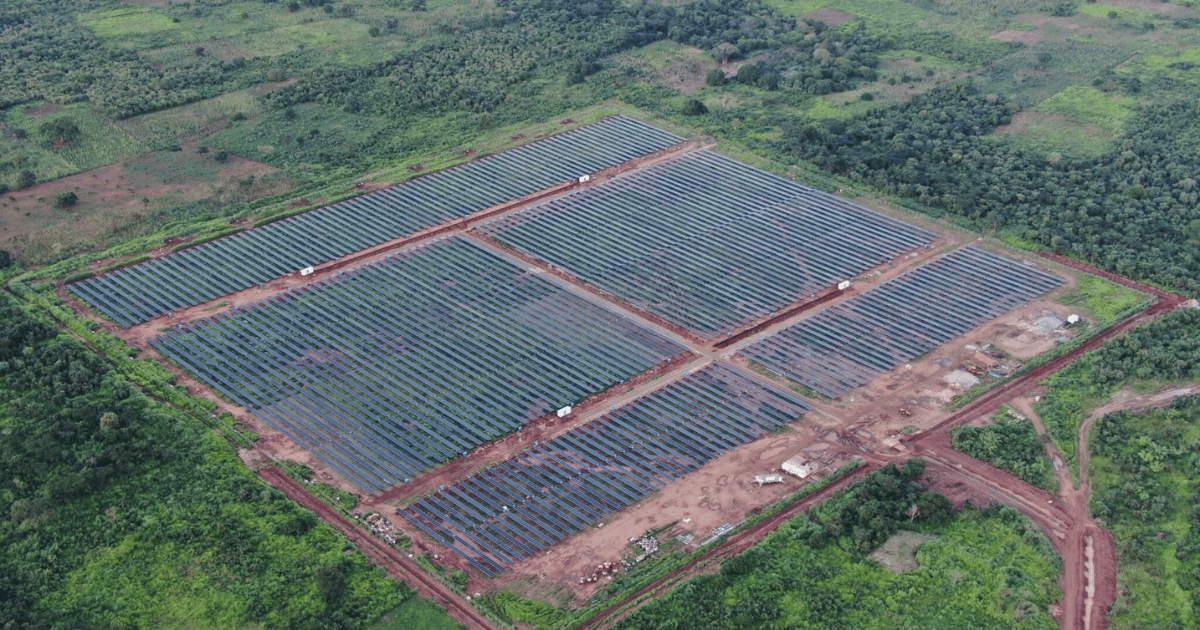- Renewables Rising
- Posts
- CrossBoundary gets access to $495m de-risking facility
CrossBoundary gets access to $495m de-risking facility

From the newsletter
The Multilateral Investment Guarantee Agency (MIGA), part of the World Bank Group, has signed an agreement with CrossBoundary Energy (CBE) to set up a pot of $495 million in guarantees that CBE can draw on for its investments. This is meant to protect CBE’s investments against currency inconvertibility and transfer restriction risks for up to 15 years.
The guarantee will be implemented using a portfolio-based structure. This will enable CBE to expand its operations across approximately 100 projects, including those in 11 low-income and four conflict-affected countries.
MIGA's guarantee helps reduce risks associated with these projects and lower financing costs. In turn, this will decrease the overall cost of generating electricity, potentially leading to more affordable tariffs for consumers.
More details
CBE operates in 22 African countries and serves a wide array of sectors, including mining, telecommunications, and heavy industry. It works to provide funding, develop, and operate renewable energy systems for commercial and industrial (C&I) clients in the sectors mentioned. This is done through an innovative 'energy-as-a-service' approach and focuses on solar PV, wind power, and battery energy storage.
To date, the company has invested more than $153 million in 36 renewable energy projects, collectively generating 100 MW. As of June 2025, its awarded projects portfolio stands at $707 million, covering 560 MW of solar, wind, and hybrid capacity, alongside over 695 MWh of energy storage in 20 African nations.
C&I clients in Africa suffer considerably from the continent's unreliable grid. Companies lose on average 5-8% of annual sales, and in extreme cases, this can be up to 31%. This has prompted many to implement backup plans, with over 52% owning or sharing a diesel generator.
However, the rising cost of fuels on the global market and the continued reliance on fuels as a major source of revenue for governments have led to it being overtaxed. In some countries, like Kenya, taxes account for more than half the total fuel price. Due to this, industries are switching to renewables. Last year, there was an addition of over 500 MW of solar installed in the C&I sector.
While there's a strong market for private power generation in Africa, energy companies face significant investment risks. These include political instability, policy uncertainty, high lending rates, and currency fluctuations. CBE, for instance, has struggled to get political risk insurance due to its vast African portfolio. Insuring each investment individually is costly and complex, hindering broad risk mitigation for currency transfer and inconvertibility.
This latest guarantee facility from MIGA allows CBE to develop a portfolio-based insurance approach, which enables MIGA to efficiently cover currency inconvertibility and transfer restrictions across CBE's entire investment portfolio. This de-risks CBE's investments and attracts more private capital, critical to scale up projects in African markets.
CrossBoundary Energy continues to make significant progress in securing funding and project deals. This week, the company announced it had secured $60 million in debt funding from Standard Bank South Africa for early procurement works on the 30 MW baseload renewable energy project for Kamoa Copper S.A. in the Democratic Republic of Congo. This project represents a continental first, providing baseload power from renewable sources.
The company has built a strong relationship with the South African bank, which has been appointed as the lead arranger for $300 million in senior debt to facilitate CBE's work across Africa. The recent funding now brings the total amount raised by the bank to $201 million.
Our take
Africa's C&I clients are heavily burned by an unreliable and expensive grid. We are seeing a market driven adoption by businesses seeking cheaper, cleaner, and reliable power. To fully unlock the market potential, policies and financial frameworks must be updated to address the current needs.
Initial capital costs for renewable energy remain high for many. However, innovative models like CBE's 'energy-as-a-service' ease this by shifting investment and operational burdens to the provider. This makes reliable power accessible and could potentially accelerate the renewable shift more effectively than traditional ownership.
Furthermore, high fuel taxes, as seen in Kenya, where they can exceed half the total price, directly inflate operational costs for businesses using diesel generators. This economic pressure makes the predictable, long-term costs of renewables highly attractive, driving industries to embrace solar and other clean energy solutions.